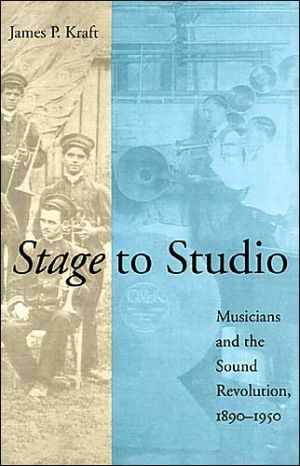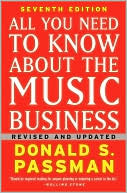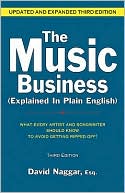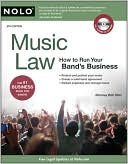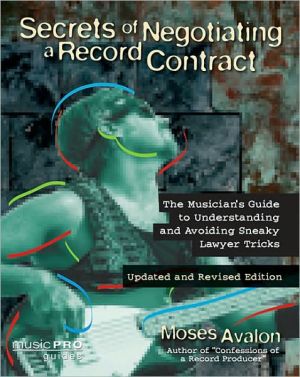Stage to Studio: Musicians and the Sound Revolution, 1890-1950
Between the late nineteenth and mid-twentieth century, technology transformed the entertainment industry as much as it did such heavy industries as coal and steel. Among those most directly affected were musicians, who had to adapt to successive inventions and refinements in audio technology—from wax cylinders and gramophones to radio and sound films. In this groundbreaking study, James P. Kraft explores the intersection of sound technology, corporate power, and artistic labor during this...
Search in google:
"A concise, well-researched and well-written historical account of the actions and reactions of unionized musicians as they faced new technologies and changing condititions of labor in early twentieth-century America." — Technology and Culture Booknews An addendum to American entertainment history tracing the 19th century boom of musicians and their decline as the recording and film industries began to expand into the 20th century. Kraft (history, U. of Hawaii) likens professional musicians to the artisans of the 1800s facing big recording studios and Hollywood stages and the "entertainment factories" which they engendered, often leaving local performers out in the cold. Thus, their history becomes a case study of the impact of technology on industry and society. Annotation c. Book News, Inc., Portland, OR (booknews.com)
AcknowledgmentsIntroduction11Working Scales in Industrial America72Boom and Bust in Early Movie Theaters333Encountering Records and Radio594Playing in Hollywood between the Wars885Rising Militancy1076Recording Ban1377Balancing Success and Failure162Conclusion193Appendix: AFM Membership, 1896-1956203Notes205Essay on Sources243Index249
\ American Historical ReviewHistorians might not have answers to the questions of technology displacing and deskilling workers, but they can lay out the facts and be sympathetic to the victims. This Kraft has done. He writes clearly and without bias, [and] has an understanding of his subjects that comes from his own background as a musician.\ — André Millard\ \ \ \ \ \ Technology and CultureIn Stage to Studio, James Kraft presents a concise, well-researched, and well-written historical account of the actions and reactions of unionized musicians as they faced new technologies and changing conditions of labor in early twentieth-century America... an important contribution to the literature on organized workers in America.\ — Emily Thompson\ \ \ \ AntennaCombining techniques from social history, labor history, and the history of technology, Kraft weaves together archival material, oral history data, and secondary sources to produce an accessible narrative and a rich analysis.\ — Harris M. Berger\ \ \ \ \ \ American Historical Review\ - André Millard\ Historians might not have answers to the questions of technology displacing and deskilling workers, but they can lay out the facts and be sympathetic to the victims. This Kraft has done. He writes clearly and without bias, [and] has an understanding of his subjects that comes from his own background as a musician.\ \ \ \ \ \ Technology and Culture\ - Emily Thompson\ In Stage to Studio, James Kraft presents a concise, well-researched, and well-written historical account of the actions and reactions of unionized musicians as they faced new technologies and changing conditions of labor in early twentieth-century America... an important contribution to the literature on organized workers in America.\ \ \ \ \ \ Antenna\ - Harris M. Berger\ Combining techniques from social history, labor history, and the history of technology, Kraft weaves together archival material, oral history data, and secondary sources to produce an accessible narrative and a rich analysis.\ \ \ \ \ \ AntennaCombining techniques from social history, labor history, and the history of technology, Kraft weaves together archival material, oral history data, and secondary sources to produce an accessible narrative and a rich analysis.\ — Harris M. Berger\ \ \ \ \ \ Technology and CultureIn Stage to Studio, James Kraft presents a concise, well-researched, and well-written historical account of the actions and reactions of unionized musicians as they faced new technologies and changing conditions of labor in early twentieth-century America... an important contribution to the literature on organized workers in America.\ — Emily Thompson\ \ \ \ \ \ American Historical ReviewHistorians might not have answers to the questions of technology displacing and deskilling workers, but they can lay out the facts and be sympathetic to the victims. This Kraft has done. He writes clearly and without bias, [and] has an understanding of his subjects that comes from his own background as a musician.\ — André Millard\ \ \ \ \ \ BooknewsAn addendum to American entertainment history tracing the 19th century boom of musicians and their decline as the recording and film industries began to expand into the 20th century. Kraft (history, U. of Hawaii) likens professional musicians to the artisans of the 1800s facing big recording studios and Hollywood stages and the "entertainment factories" which they engendered, often leaving local performers out in the cold. Thus, their history becomes a case study of the impact of technology on industry and society. Annotation c. Book News, Inc., Portland, OR (booknews.com)\ \
